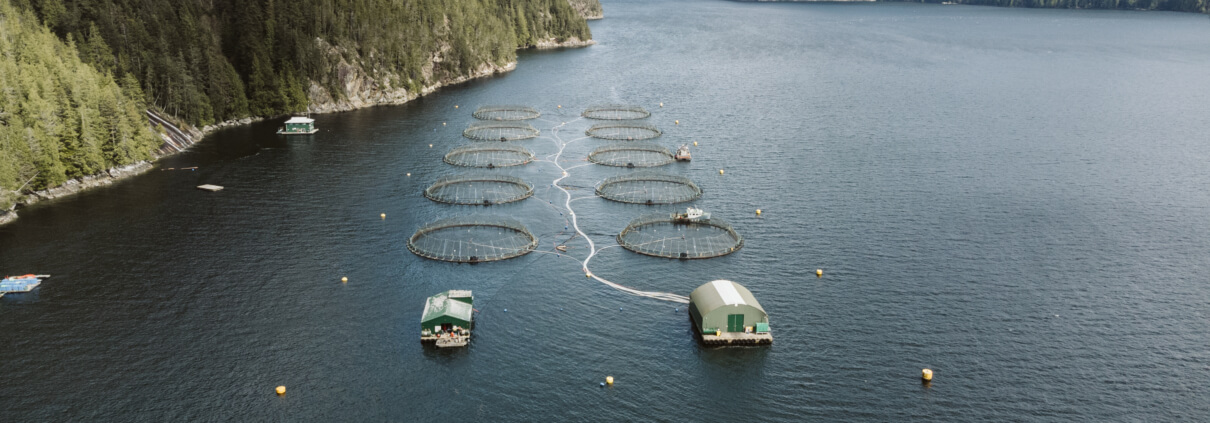Salmon Health research to advance thanks to North Family Foundation gift
Vancouver, B.C. – The Pacific Salmon Foundation Salmon Health Program launches today thanks to a $450,000 donation from the North Family Foundation, led by long-time salmon advocates Rudy and Patricia North. The donation will advance critical research into the cumulative ecological stressors facing salmon at a time when half of populations are in decline.
PSF’s Salmon Health Program will build on the organization’s track record and expertise researching the impacts on Pacific salmon of pathogens from open net-pen fish farms on the health of wild Pacific salmon. Independent, peer-reviewed science is fundamental and essential to informed decision-making and policy development for salmon survival.
“Through my lifetime, I’ve been a passionate advocate for our marine ecosystems and salmon research and recovery efforts. My hope is that this donation, together with the support of others in our community, will advance the research required to galvanize action to stop the dramatic decline in salmon populations that we have all witnessed in recent decades,” says Rudy North, North Family Foundation.
The Salmon Health Program catalyzes research using novel Salmon FitChip technology developed by geneticist Dr. Kristi Miller-Saunders, Department of Fisheries and Oceans Canada, through a joint research program with PSF. The FitChip screens genetic markers from a salmon’s DNA and provides substantial insight into the factors impacting salmon health. The salmon Fit-Chip can differentiate stress responses to increased water temperature, low oxygen, and shifting salinities, and provide an index linked to decreased long-term survival of salmon.
“Essentially, the FitChip provides the salmon with a voice to tell us what stressors are impacting their health,” says Michael Meneer, President & CEO, Pacific Salmon Foundation.
For example, the FitChip can indicate whether a salmon is suffering from a viral disease or imminently close to death. With the improved data-based information that FitChips provide of how salmon are most challenged, and which environmental stressors are most closely linked with their survival, we can mitigate stressors under human control.
“With the combined impacts of climate change, development and open-net fish farms, salmon face a myriad of challenges and many stocks are in crisis. Thanks to Rudy and Patricia North’s generous donation, and long-time support of Pacific salmon, we feel hopeful that PSF will identify solutions to help us save and restore populations,” says Meneer.
The Salmon Health Program will focus on three primary areas to help save salmon:
- Independent Research + Monitoring of Aquaculture: PSF experts will conduct research and monitoring related to sea-lice and pathogen transfer to advance the federal government’s 2025 commitment- deadline to transition away from open-net aquaculture.
- Broughton Partnership: under the Mamalilikulla, ’Namgis, and Kwikwasut’inuxw Haxwa’mis First Nation’s Indigenous Monitoring and Inspection Program, PSF’s Salmon Health Program is undertaking monitoring on and near active and recently closed fish farm sites with the use of eDNA technology.
- Cumulative Environmental Stressors: Our team will deploy cutting-edge FitChip technology to understand the combined impact of changing environmental conditions on the health of Pacific salmon in relation to long-term survival. We will drive action to mitigate the specific stressors we identify. This will inform the broader effort to restore Pacific salmon amidst climate change.
This generous gift advances PSF to the halfway mark in a $950,000 fundraising campaign that will further advance our understanding of the environmental stressors impacting the declines in salmon populations.
-30-



